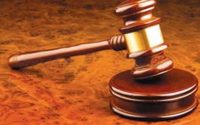$100 Website Offer
Get your personal website + domain for just $100.
Limited Time Offer!
Claim Your Website NowDelhi High Court defers hearing on naming Lok Sabha opposition leader
Source: indiatoday.in
The Delhi High Court on Wednesday posted for July 8 a plea seeking direction to the Lok Sabha Speaker to appoint a Leader of Opposition in the Lok Sabha, saying there was no urgency in the matter.
A vacation bench was hearing a Public Interest Litigation (PIL) filed by advocates Manmohan Singh and Shishmita Kumari who also sought direction to the Speaker to frame a policy for appointment as Leader of Opposition in the Lower House.
The matter was posted for a regular bench.
“In the new Lok Sabha, with 52 members, the Congress is the largest party in the opposition and is, therefore, the rightful claimant to the post under the law. There is no ambiguity about it as the law is absolutely clear on this point,” the lawyers stated.
Denying the second largest party in Parliament (Lok Sabha) the Leadership of the Opposition status would set a wrong precedent and dilute democracy, they said.
A powerful opposition was necessary to check the ruling party as dissent was extremely important for democracies, they argued.
They said the argument that the Congress could not claim the status it did not have 10 per cent of the total members in the House was devoid of any merit.
The petitioners told the court that recognizing a member of the House as the Leader of Opposition was not a political or arithmetical but a statutory decision.
The Speaker has to merely ascertain whether the party claiming the post was the largest party in the opposition.
“That the Leader of Opposition is one of the key parliamentary functionaries whose role, though not defined in any rule, is of great importance for the functioning of a legislature. He or she is invariably a senior leader, representing the main opposition party in the legislature,” the plea read.
“There is no room for ifs and buts. Under the Salaries and Allowances of Leaders of Opposition in Parliament Act, 1977, the duty of the Speaker is to recognise the eligible person as the Leader of Opposition,” they stated.
They argued since the Speaker was performing a statutory duty in recognizing the Leader of Opposition, she or he could not exercise any discretion.



